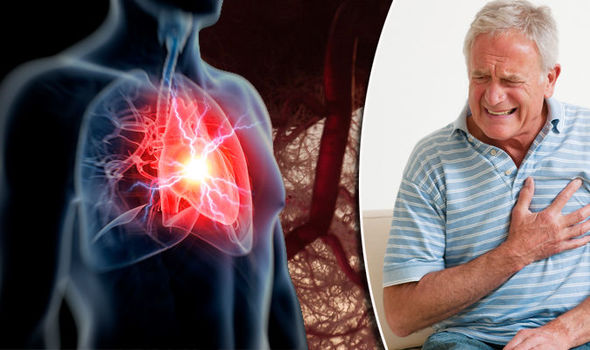During the cold winter months, certain symptoms can occur that may indicate heart-related issues. Many people tend to dismiss these signs as common cold weather symptoms, but it is important to recognize that they can be warning signals of a heart attack. This article highlights five key signs to watch out for in the morning, as the risk of heart problems can increase in the winter season.
1. Chest Pain or Pressure
One of the most common symptoms of a heart attack is chest pain or a feeling of pressure in the chest. In winter, this discomfort can be more pronounced. The pain may start suddenly and can radiate to the shoulders, arms, neck, or even the jaw. If this pain becomes persistent or intensifies over time, it is a serious concern and should not be ignored. Prompt medical attention is essential.
2. Difficulty Breathing
Breathing difficulties in the winter months can be linked to heart health. If you experience shortness of breath or feel breathless even without physical exertion, it may be a sign that your heart is not functioning optimally. This symptom should never be overlooked, as it can indicate heart failure or another serious condition affecting the heart.
3. Excessive Sweating
In cold weather, excessive sweating without any physical effort, especially when accompanied by chest pain or discomfort, can be a warning of a heart attack. If your body suddenly starts sweating profusely and you feel cold, it could be due to a lack of proper blood circulation or heart function. These symptoms demand immediate attention to prevent further complications.
4. Dizziness and Fainting
Sudden dizziness or fainting spells are concerning signs of reduced blood flow to the brain, which may be related to heart problems. If you experience these symptoms, they may indicate that the heart is struggling to pump blood effectively. Such signs require urgent medical evaluation to rule out any serious conditions, including a heart attack.
5. Extreme Fatigue or Weakness
Feeling unusually tired or weak during the cold season may also be a sign of heart distress. If your heart is not pumping blood efficiently, you may experience fatigue even with normal daily activities. It’s essential to recognize that extreme tiredness or weakness can be a precursor to more severe heart issues. Don’t overlook these symptoms, and seek medical guidance if you notice them.
Conclusion
Winter mornings can be particularly dangerous for heart health, with symptoms of a heart attack becoming more apparent. Chest pain, breathing difficulties, excessive sweating, dizziness, and fatigue are all potential warning signs of heart issues that should never be ignored. If you experience any of these symptoms, it is important to seek immediate medical attention. Early intervention can help prevent more severe complications and improve outcomes.
Always consult with your doctor or a healthcare professional before making significant dietary changes for heart health. They can provide personalized guidance based on your medical history and current health status.
If you have any health-related concerns, please call us at +91-9058577992 to receive a free consultation from our experienced doctors. Thank you!

